 W
WA fad diet is a diet that becomes popular for a short time, similar to fads in fashion, without being a standard dietary recommendation, and often making unreasonable claims for fast weight loss or health improvements. There is no single definition of what is a fad diet. The term fad diet encompasses a variety of diets with different approaches and evidence bases, and thus different outcomes, advantages, and disadvantages.
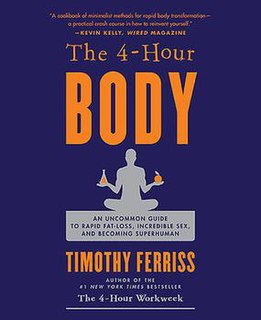 W
WThe 4-Hour Body: An Uncommon Guide to Rapid Fat-Loss, Incredible Sex, and Becoming Superhuman is a nonfiction book by American writer Tim Ferriss. It was published by Crown Publishing Group in 2010.
 W
WIntermittent fasting, also known as intermittent energy restriction, is an umbrella term for various meal timing schedules that cycle between voluntary fasting and non-fasting over a given period. Methods of intermittent fasting include alternate-day fasting, periodic fasting, and daily time-restricted feeding. A type of periodic fasting known as the 5:2 diet was popularised in the UK and Australia by Michael Mosley around 2012.
 W
WActivated charcoal cleanses, also known as charcoal detoxes, are a pseudoscientific use of a proven medical intervention. Activated charcoal is available in powder, tablet and liquid form. Its proponents claim the use of activated charcoal on a regular basis will detoxify and cleanse the body as well as boost one's energy and brighten the skin. Such claims violate basic principles of chemistry and physiology. There is no medical evidence for any health benefits of cleanses or detoxes via activated charcoal or any other method. Charcoal, when ingested, will absorb vitamins and nutrients as well as prescription medications present in the gastrointestinal tract which can make it dangerous to use unless directed by a medical doctor.
 W
WDanielle Walker is an American writer, founder and editor of the gluten and grain-free food blog Against All Grain, and the best-selling cookbook of the same name.
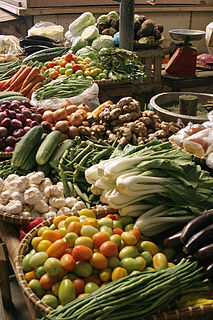 W
WAlkaline diet describes a group of loosely related diets based on the misconception that different types of food can have an effect on the pH balance of the body. It originated from the acid ash hypothesis, which primarily related to osteoporosis research. Proponents of the diet believe that certain foods can affect the acidity (pH) of the body and that the change in pH can therefore be used to treat or prevent disease. Credible laboratories have done extensive research on this subject and have proven the theory to be false, not supporting the claimed mechanism of this diet. Due to conclusive evidence, it is not recommended by dietitians or other health professionals.
 W
WThe Atkins diet is a low-carbohydrate fad diet devised by Robert Atkins in the 1970s, marketed with claims that carbohydrate restriction is crucial to weight loss and that the diet offered "a high calorie way to stay thin forever".
 W
WGeorge Argale Harrop was an American physician, nutritionist and writer.
 W
WRudolf Breuss was an Austrian naturopath and alternative cancer treatment advocate.
 W
WDave Asprey is an American entrepreneur and author. He founded Bulletproof 360, Inc. in 2013, and in 2017, founded Bulletproof Nutrition Inc. He has written five books. Men's Health described Asprey as a "lifestyle guru".
 W
WThe cabbage soup diet is a radical weight loss diet designed around heavy consumption of a low-calorie cabbage soup over seven days. It is generally considered a fad diet, in that it is designed for short-term weight-loss and requires no long-term commitment.
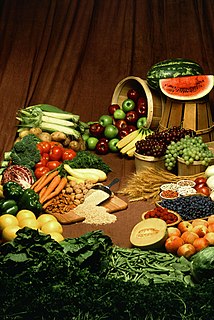 W
WClean eating is a fad diet based on the belief that consuming whole foods and avoiding convenience food and other processed foods offers certain health benefits. Variations of the diet may also exclude gluten, grains, and/or dairy products and advocate the consumption of raw food. The diet has been criticized for lacking scientific evidence and potentially posing health risks. Clean eating is not supported by nutritionists, as it may lead to malnutrition and the formation of unhealthy eating practices.
 W
WThe cotton ball diet is a fad diet that involves consuming cotton balls dipped in liquids such as juices or smoothies. The cotton is intended to make a person's stomach feel full without them gaining weight. The diet has been repeatedly condemned as dangerous. It is thought to originate from the modeling industry in which women are encouraged to be unhealthily thin.
 W
WVance Thompson was an American literary critic, novelist, poet and low-carbohydrate diet writer.
 W
WThe egg and wine diet is a fad diet that was popularized in 1964 and revived in 2018 on social media platforms.
 W
WHerbert Sutcliffe was an English psychologist, alternative health advocate and new thought teacher. He founded a proto-New Age movement called the School of Radiant Living. Many of Sutcliffe's ideas about health were pseudoscientific.
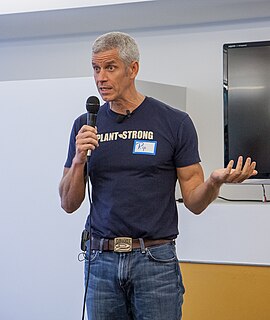 W
WRip Esselstyn, a former firefighter and triathlete, is an American health activist and food writer. He is the author of The Engine 2 Diet (2009), Plant-Strong (2016) previously published as My Beef With Meat (2013), and The Engine 2 Seven-Day Rescue Diet (2017).
 W
WCarlson Wade (1928-1993) was an American alternative health writer who authored many books promoting detoxification, fasting, juicing, natural foods and raw food dieting. He developed a fad diet known as the Enzyme-Catalyst Diet.
 W
WAnn Louise Gittleman is an American author and proponent of alternative medicine, especially fad diets. She regards herself as a nutritionist. Gittleman has written more than two dozen books and is known for The Fat Flush Plan, a "detox" diet and exercise program that she developed into a series of books. Gittleman's ideas on health and nutrition are regarded as pseudoscience.
 W
WFit for Life is a diet and lifestyle book series stemming from the principles of orthopathy. It is promoted mainly by the American writers Harvey and Marilyn Diamond. The Fit for Life book series describes a fad diet which specifies eating only fruit in the morning, eating predominantly "live" and "high-water-content" food, and, if animal protein is eaten, avoiding combining it with complex carbohydrates.
 W
WFruitarianism is a subset of dietary veganism, consisting of primarily fruits, and possibly nuts and seeds, but without animal products. Fruitarian diets are subject to numerous criticisms and health concerns.
 W
WA gluten-free diet (GFD) is a nutritional plan that strictly excludes gluten, which is a mixture of proteins found in wheat, as well as barley, rye, and oats. The inclusion of oats in a gluten-free diet remains controversial, and may depend on the oat cultivar and the frequent cross-contamination with other gluten-containing cereals.
 W
WCraig Claiborne was an American restaurant critic, food journalist and book author. A long-time food editor and restaurant critic for The New York Times, he was also the author of numerous cookbooks and an autobiography. Over the course of his career, he made many contributions to gastronomy and food writing in the United States.
 W
WSylvester Graham was an American Presbyterian minister and dietary reformer known for his emphasis on vegetarianism, the temperance movement, and eating whole-grain bread. His preaching inspired the graham flour, graham bread, and graham cracker products. Graham is often referred to as the "Father of Vegetarianism" in the United States of America.
 W
WThe Grapefruit diet is a short-term fad diet that has existed in the United States since at least the 1930s. There are variations on the diet, although it generally consists of eating one grapefruit at each meal, along with meat, eggs, other foods that are rich in fat and protein, and certain vegetables. Sugar, fruits, sweet vegetables, grains and starchy vegetables are to be avoided. The grapefruit diet is thus a low-carbohydrate diet. A typical breakfast menu usually includes bacon and eggs. The diet is based on the claim that grapefruit has a fat-burning enzyme or similar property. The grapefruit diet does not require exercise. The grapefruit diet lasts for 10 to 12 days followed by 2 days off.
 W
WChristian diet programs are books and other name-brand products promoting weight-loss diets and other diets that the authors believe are consistent with Christian rules and values. They may borrow elements from Jewish dietary laws, the Bible, modern nutrition science, or other sources. Christian diet and exercise programs became popular in the 1970s. They differ from historical, non-commercial Christian dietary traditions, such as not eating meat on Fridays.
 W
WA high-protein diet is a diet in which 20% or more of the total daily calories comes from protein. Most high protein diets are high in saturated fat and severely restrict intake of carbohydrates.
 W
WAnn Wigmore was a Lithuanian–American holistic health practitioner, naturopath and raw food advocate.
 W
WIntermittent fasting, also known as intermittent energy restriction, is an umbrella term for various meal timing schedules that cycle between voluntary fasting and non-fasting over a given period. Methods of intermittent fasting include alternate-day fasting, periodic fasting, and daily time-restricted feeding. A type of periodic fasting known as the 5:2 diet was popularised in the UK and Australia by Michael Mosley around 2012.
 W
WJuice fasting, also known as juice cleansing, is a fad diet in which a person consumes only fruit and vegetable juices while abstaining from solid food consumption. It is used for detoxification, an alternative medicine treatment, and is often part of detox diets. The diet can typically last for two to seven days and involve a number of fruits and vegetables and even spices that are not among the juices typically sold or consumed in the average Western diet. The diet is sometimes promoted with implausible and unsubstantiated claims about its health benefits.
 W
WLelord Kordel was a Polish American nutritionist and author of books on healthy living. He was consulted by top Hollywood stars and earned several awards, but was fined and imprisoned for making false claims about his products. Kordel promoted a low-carbohydrate high-protein fad diet.
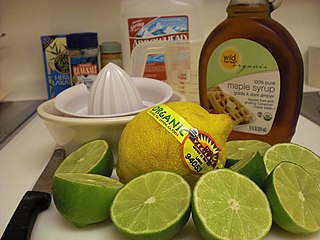 W
WMaster Cleanse is a modified juice fast that permits no food, substituting tea and lemonade made with maple syrup and cayenne pepper. The diet was developed by Stanley Burroughs, who initially marketed it in the 1940s, and revived it in his 1976 book The Master Cleanser. Proponents claim that the diet tones, reduces and cleanses the body, allowing the body to heal itself. There is no evidence that the diet removes any toxins or that it achieves anything beyond temporary weight loss, followed by rapidly regaining the lost weight.
 W
WJohn A. McDougall is an American physician and author who is the co-founder, chairman, and sole board member of San Francisco–based Dr. McDougall's Right Foods Inc. He has written a number of diet books advocating the consumption of low-fat, starchy food. His diet—The McDougall Plan—has been described as a fad diet that carries some possible disadvantages, such as flatulence, limited food choice and poor mineral absorption from excessive fiber intake.
 W
WArnold Ehret was a German naturopath and alternative health educator, best known for developing the Mucusless Diet Healing System. Ehret authored books and articles on dieting, detoxification, fruitarianism, fasting, food combining, health, longevity, naturopathy, physical culture and vitalism.
 W
WEdward Hooker Dewey, best known as Edward H. Dewey was an American physician. He was a pioneer of therapeutic fasting and the inventor of the "No Breakfast Plan".
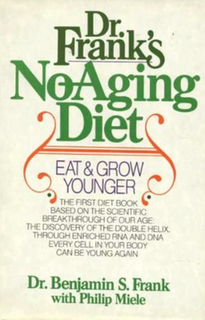 W
WThe No-Aging Diet is a high-protein fad diet developed by physician Benjamin S. Frank.
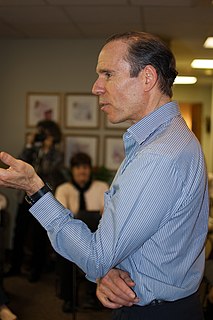 W
WJoel Fuhrman is an American celebrity doctor who advocates what he calls a micronutrient-rich diet.
 W
WThe Paleolithic diet, Paleo diet, caveman diet, or stone-age diet is a modern fad diet consisting of foods thought by its proponents to mirror those eaten by humans during the Paleolithic era.
 W
WJean-Michel Cohen is a French nutritionist and author, best known for the Parisian Diet.
 W
WMark Adam Hyman is an American physician and New York Times bestselling author. He is the founder and medical director of The UltraWellness Center and was a columnist for The Huffington Post. Hyman was a regular contributor to the Katie Couric Show until the show's cancellation in 2013. He writes a blog called The Doctor’s Farmacy, which examines many topics related to human health and welfare.
 W
WAseem Malhotra is a British cardiologist, and controversial public health campaigner. He is a visiting professor, author of several books and writer of articles in newspapers, who has written scores of editorials and maintains a high profile on social media and television. He has received recognition for his campaigning particularly on reducing sugar in the diet and when Action on Sugar was founded in 2014, he was its first Science Director. He is also recognized for campaigning on reducing over-prescribing of medicines. He has been listed as one of The Sunday Times 500 most influential people, identified as one of the top ten "Smart Set" in the London Evening Standard, and twice being recognized as one of the top 50 BME pioneers in the UK National Health Service. The judges for the Health Service Journal top 50 BME pioneers commented "Yes. He challenges people". He promotes a low carb, high fat diet and is co-author of a book called the Pioppi diet. However, Maholtra's views on diet and health have been criticized by the British Heart Foundation as "misleading and wrong", and his public questioning of the need ever to use statins has been condemned as a danger to public health. His "Pioppi diet" was named by the British Dietetic Association as one of the "top 5 worst celeb diets to avoid in 2018". During the COVID-19 pandemic Malhotra published a book called the "21 day Immunity plan" making claims that following this healthy diet program could quickly help people reduce their risk from the virus; critics point out that such claims are not backed by medical research evidence.
 W
WProtein Power is a high-protein low-carbohydrate fad diet developed by physician Michael R. Eades and his wife Mary Dan Eades.
 W
WRaw foodism, also known as rawism or following a raw food diet, is the dietary practice of eating only or mostly food that is uncooked and unprocessed. Depending on the philosophy, or type of lifestyle and results desired, raw food diets may include a selection of fruits, vegetables, nuts, seeds, eggs, fish, meat, and dairy products. The diet may also include simply processed foods, such as various types of sprouted seeds, cheese, and fermented foods such as yogurts, kefir, kombucha, or sauerkraut, but generally not foods that have been pasteurized, homogenized, or produced with the use of synthetic pesticides, fertilizers, solvents, and food additives.
 W
WRaw foodism, also known as rawism or following a raw food diet, is the dietary practice of eating only or mostly food that is uncooked and unprocessed. Depending on the philosophy, or type of lifestyle and results desired, raw food diets may include a selection of fruits, vegetables, nuts, seeds, eggs, fish, meat, and dairy products. The diet may also include simply processed foods, such as various types of sprouted seeds, cheese, and fermented foods such as yogurts, kefir, kombucha, or sauerkraut, but generally not foods that have been pasteurized, homogenized, or produced with the use of synthetic pesticides, fertilizers, solvents, and food additives.
 W
WJames Henry Salisbury, M.D. was a 19th-century American physician, and the inventor of the Salisbury steak.
 W
WThe Scarsdale diet is a high-protein low-carbohydrate fad diet designed for weight loss created in the 1970s by Herman Tarnower, named for the town in New York where he practiced cardiology, described in the book The Complete Scarsdale Medical Diet plus Dr. Tarnower's Lifetime Keep-Slim Program, which Tarnower wrote with self-help author Samm Sinclair Baker.
 W
WSeed cycling is the rotation of different edible seeds into the diet at different times in the menstrual cycle. Practitioners believe that since some seeds promote estrogen production, and others promote progesterone production, that eating these seeds in the correct parts of the menstrual cycle will balance the hormonal rhythm.
 W
WSensa is an American brand of diet aid created by Alan Hirsch, an American neurologist and psychiatrist. The product lacks scientific evidence of effect and has been the subject of controversy and lawsuits. Following a $26 million fine by the U.S. Federal Trade Commission in 2014, the company ceased operations.
 W
WThe Sugar Busters diet is a diet focused on eliminating foods containing refined carbohydrates such as refined sugar, white flour, and white rice, as well as naturally occurring carbohydrates rating high on the glycemic index such as potatoes and carrots.
 W
WThe Swank Diet is a diet that is low in saturated fat, which was proposed in 1949 by Roy Laver Swank, MD, PhD (1909–2008), academic neurologist at the University of Oregon, for the treatment of multiple sclerosis.
 W
WJorge Cruise is a Mexican author, fitness trainer and proponent of intermittent fasting and low-carbohydrate dieting. He is the author of The Cruise Control Diet (2019) as well as books on The New York Times bestseller list: The 100 (2013), The Belly Fat Cure (2010), Body at Home (2009), The 12-Second Sequence (2009), The 3-Hour Diet (2006), and 8 Minutes in the Morning (2002).
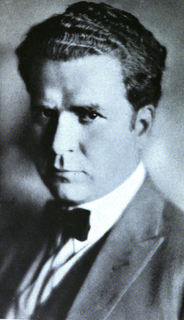 W
WFrank Joseph McCoy was an American chiropractor and alternative health author, known for his book The Fast Way to Health, as well as his nationally syndicated health- and nutrition-related newspaper columns and radio broadcasts. He was active between 1923 and 1940. His ideas were criticized by medical experts as quackery.
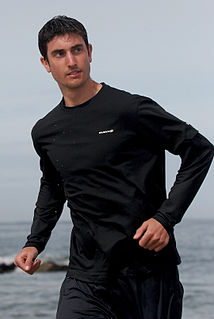 W
WBrendan Brazier is a Canadian former endurance athlete, author, advocate of a vegan diet, and creator of the Vega line of food products and supplements. Brazier is a former Ironman triathlete. He is the author of The Thrive Diet (2007), Thrive Fitness (2009), and Thrive Foods: 200 Plant-Based Recipes for Peak Health (2011).
 W
WMark Bittman is an American food journalist, author, and former columnist for The New York Times. Currently, he is a fellow at the Union of Concerned Scientists. Bittman has promoted VB6, a semi-vegan diet.
 W
WA very-low-calorie diet (VLCD), also known as semistarvation diet and crash diet, is a type of diet with very or extremely low daily food energy consumption. Often described as a fad diet, it is defined as a diet of 800 kilocalories (3,300 kJ) per day or less. Modern medically supervised VLCDs use total meal replacements, with regulated formulations in Europe and Canada which contain the recommended daily requirements for vitamins, minerals, trace elements, fatty acids, protein and electrolyte balance. Carbohydrates may be entirely absent, or substituted for a portion of the protein; this choice has important metabolic effects. Medically supervised VLCDs have specific therapeutic applications for rapid weight loss, such as in morbid obesity or before a bariatric surgery, using formulated, nutritionally complete liquid meals containing 800 kilocalories or less per day for a maximum of 12 weeks.
 W
WWheatgrass is the freshly sprouted first leaves of the common wheat plant, used as a food, drink, or dietary supplement. Wheatgrass is served freeze dried or fresh, and so it differs from wheat malt, which is convectively dried. Wheatgrass is allowed to grow longer and taller than wheat malt.
 W
WAnn Wigmore was a Lithuanian–American holistic health practitioner, naturopath and raw food advocate.